Taking the reins: How therapy horses change the lives of riders, carers and volunteers alike
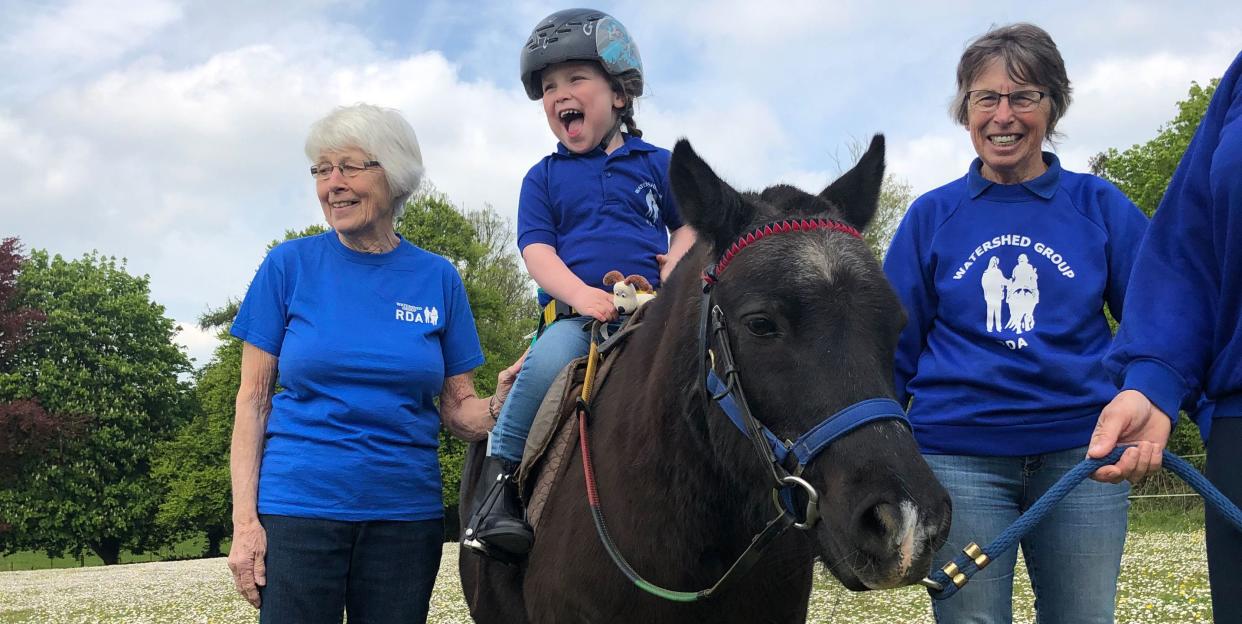
To celebrate the hard work of therapy animals around the UK, Country Living visit the Riding for the Disabled Association’s (RDA) Watershed group in Gloucestershire. The RDA will celebrate their 50th anniversary this year.
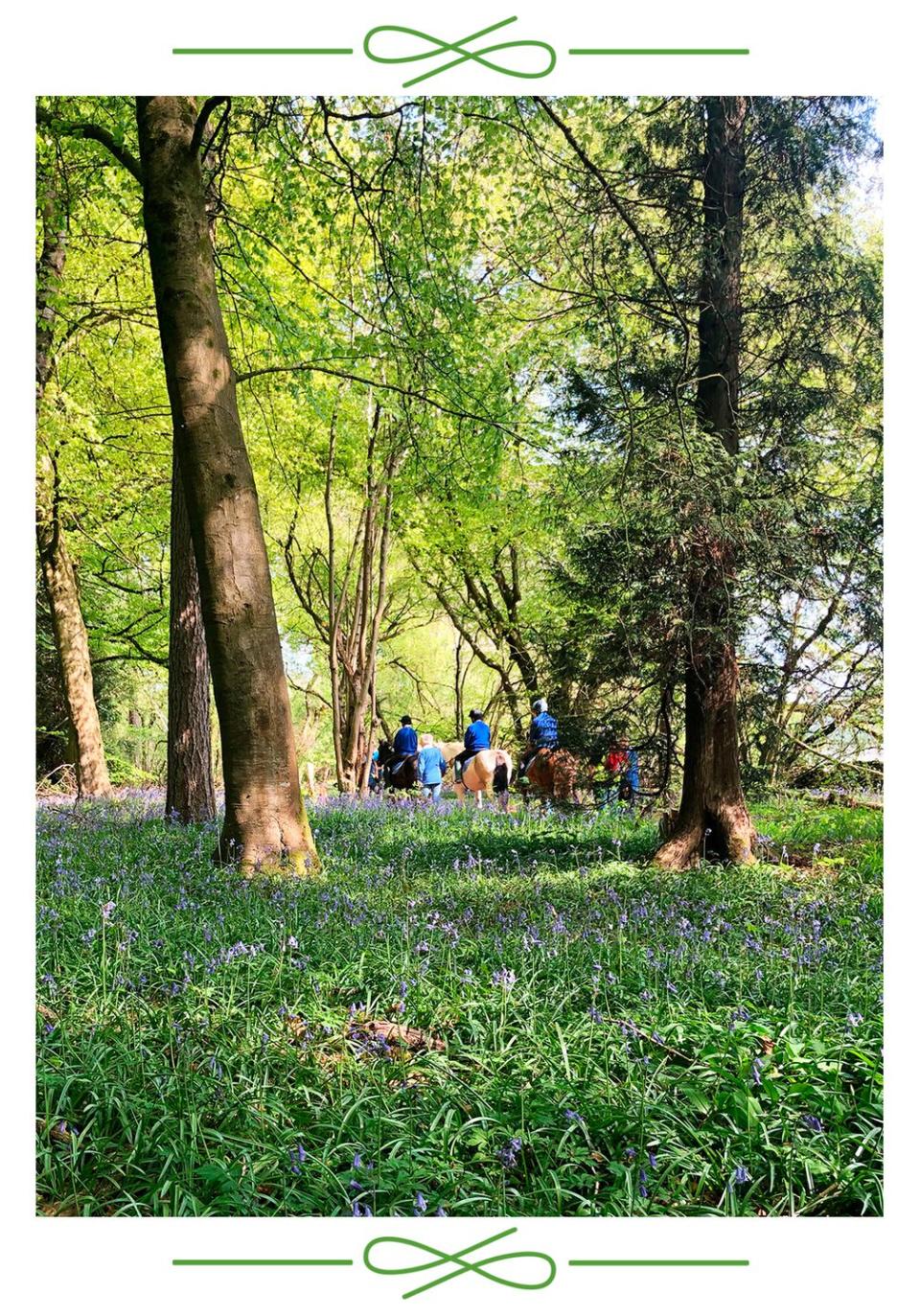
The welcome from the passionate volunteers at Watershed, in the postcard-perfect Cotswold village of Coates, is as warm as the smiles on the disabled riders’ faces when they mount their favourite therapy horse. Each rider has formed a fierce bond with their animal, entrusting them to pick up the slack when their mental or physical disabilities don’t allow them to have full control.
Between 500 individually-run groups, the RDA provide horse sports for 25,000 disabled adults and children in the UK. But it’s much more than just physical exercise – they offer a welcoming family community and safe space for the courageous riders, the tireless mothers and careers, and the generous volunteers alike. It's a “calming happy family,” says one rider's mother.
Most of the disabled riders visit Watershed on a regular basis, at least once a week, with some riders traveling over 20 miles to attend. Every person we meet radiates positivity for the centre – be it about the wellbeing benefits for the riders; the respite for the carers; or the rewarding activity and life after retirement it gives many of the volunteers.
Why horses?
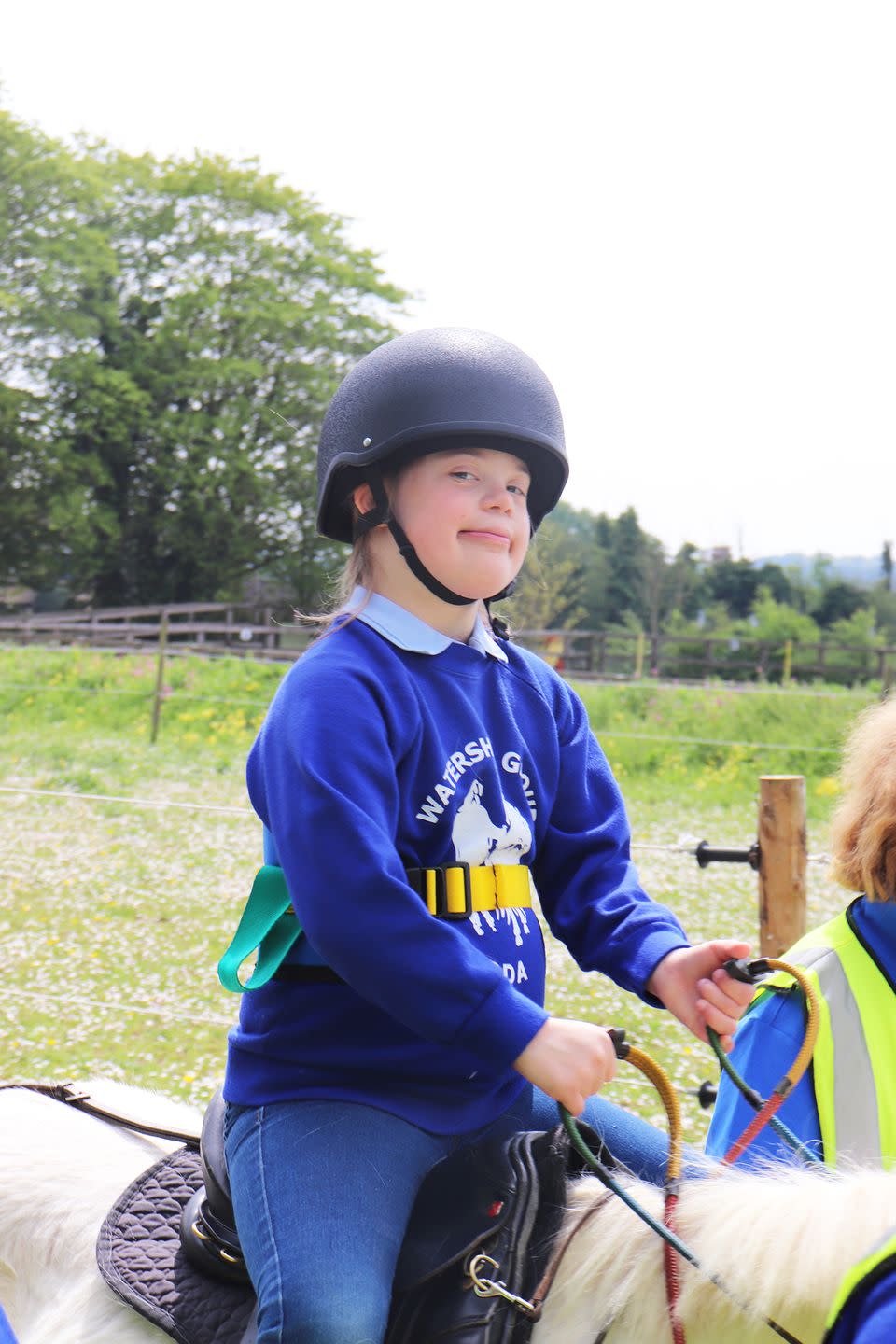
"I think it's because they're so big," Watershed volunteer Pam Farnsworth tells Country Living. "Dogs and cats are very therapeutic but a horse is a big animal and you have to respect an animal that size. And yet, when you ride them, you just end up in tune with a horse. It's difficult to describe but there is definitely a feeling of one with a large and powerful animal."
Pam, who works part-time and looks after her grandchildren one day a week, has volunteered at Watershed for 15 years. "It's a fantastic thing for all sorts of people to do," she explains. "There are a lot of people who live on their own and therefore, perhaps, the interaction here and the ability to make new friends amongst volunteers is as important as the riding."
We met four-year-old Gwendolyn who can now sit upright by herself...
Four-year-old Gwendolyn, from Bourton-on-the-Water, stole our hearts right away. Born three months premature, the characterful and expressive little girl has what her mum Kieri calls “quite a CV of illnesses and difficulties,” including chronic lung disease, cerebral palsy, epilepsy, autism and speech delay.
But it’s not just her disabilities that define Gwendolyn, she’s an “animal fanatic – the bigger the better,” says mum Kieri. “She’d have a shire horse if she could have her own way.”
Kieri goes on to describe: “When we first started [horse riding], Gwendolyn was very unsure around strange adults. When she was on the horse she couldn’t even sit up without two people physically holding her upright, let alone hold the reins. She could only last around two minutes.
"Now, Gwendolyn can do a full half-an-hour lesson and completely hold herself upright. She can grasp the reigns and actually becomes quite chatty. It resets her. We come out here in the fresh air or even if it’s raining and sitting on Ben, her pony, calms her straight away.”
We met adult rider Penny who has regained the strength to hang the washing up...
We also met adult rider, Penny Thomas, who used to ride horses as a child but was diagnosed with multiple sclerosis in 1984. We interviewed Penny in the Watershed stables whilst pony, Mo, wrestled with her to be front-and-centre of our camera.
For 20 years after her MS diagnosis, Penny explained that she felt "ok-ish, though a little wobbly." But 12-years-ago Penny was also diagnosed with breast cancer which gave her body what she describes as "a really good shake up." Penny now walks with sticks and uses a scooter.
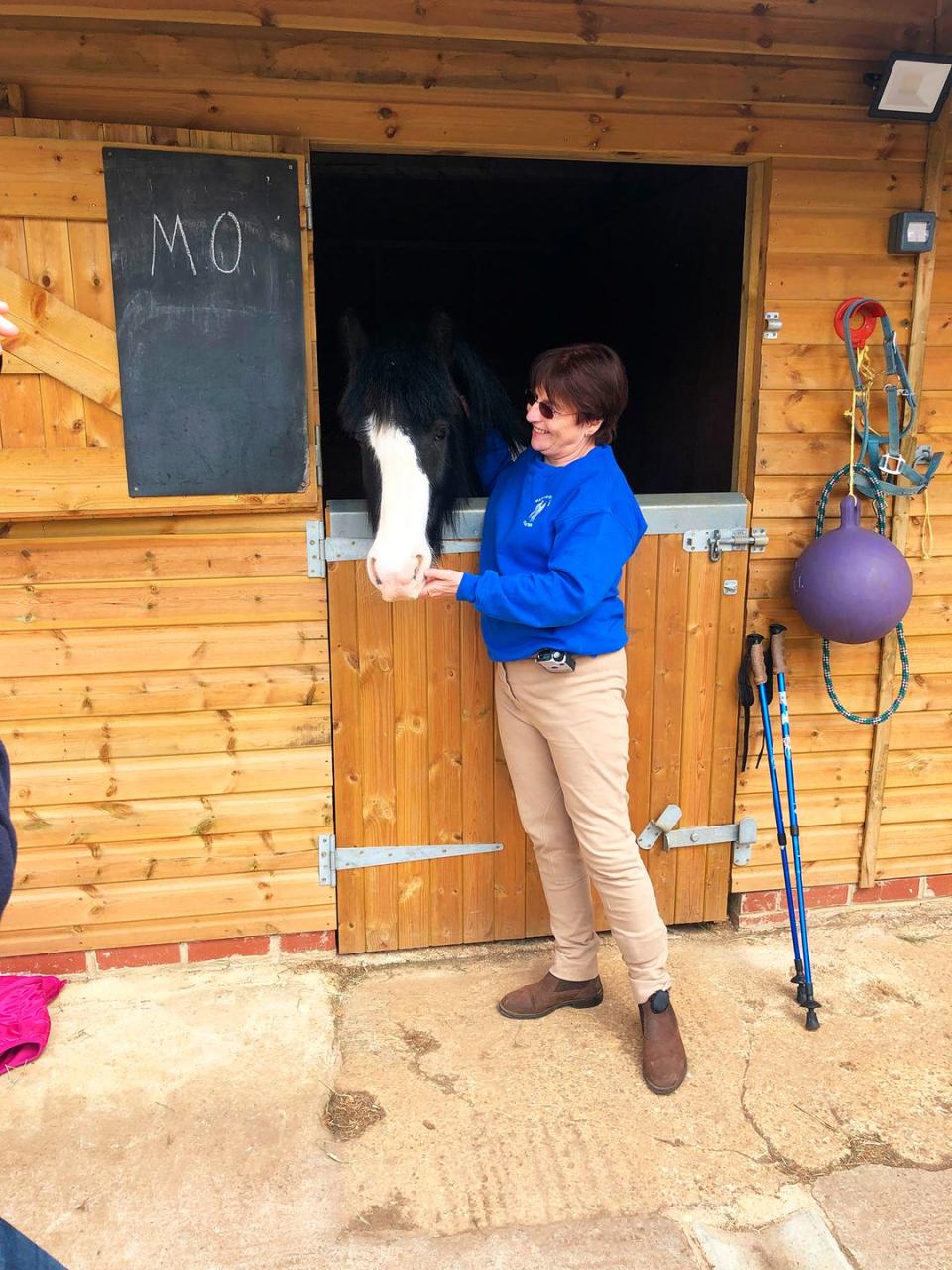
"When I was 40 I said to my daughter 'I can't ride any more'," Penny tells us, but that was before she had seen a leaflet for the Watershed RDA...
"I came to Watershed four-years-ago and it's the best thing I've ever done. It really is," says Penny. "Mentally, I love it. I'm an animal sort of person anyway." (Although Penny does admit to having a particular soft spot for horses because, to them, she is just any other rider who is not defined by a disability. "They don't know anything about me," she smiles.)
Penny told us that the biggest change she has seen since taking up horse riding again has been her increased strength. “I can put my arms up,” Penny tells us. “I can hang the washing up – I know it’s sad but I can actually hang the washing up. I can just do normal things that I used to do.”
"My youngest son said to me that now I look so happy and relaxed. At one time, I was sort of snappy and snarly, but apparently I'm quite a nice person now."
Happy 50th birthday to the RDA
The RDA, who have always strived to challenge the perceptions of disability, are thrilled to be celebrating 50 years of providing the less able with an activity that becomes a lifeline to them and their families.
There will be many commemorative events throughout the year, including a celebration week in October for all RDA groups across the UK and a parade at their annual horse sport championships.
The RDA have also launched their 50 Faces campaign which showcases 50 inspiring stories from people who have benefited from horse riding, including members, volunteers and supporters.
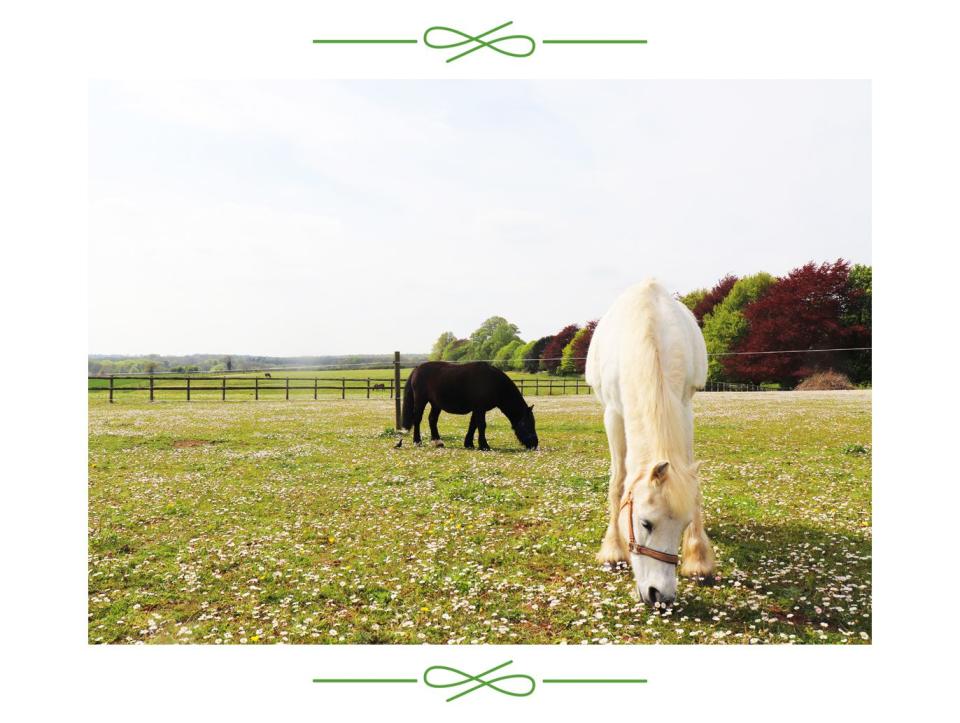
('You Might Also Like',)

